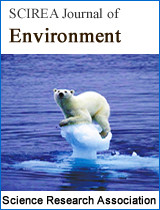DETAILED ZONING OF THE COASTAL AND SHELF AREAS OF MARINE ECOREGIONS: A CASE STUDY OF THE BLACK SEA
DOI: 10.54647/environmental61295 79 Downloads 93863 Views
Author(s)
Abstract
A system of units for detailed zoning is proposed reflecting the action of three factors: tectonic movements, subdivision of the shelf into three vertical belts and geographic zonation. The main initial unit of zoning of the shallow seabed is the underwater landscape. It occurs within one morphostructural county, one vertical belt, one geographical zone. The landscapes of the upper belt of the shelf (coastal zone of the sea) are characterized by the greatest diversity. The internal bionomic heterogeneity of landscapes depends on their morphological structure: a system of horizontal subdivision biotopes - facies, landforms and vertical zones, floors, steps. A fragment of the detailed zoning of the north-eastern Black Sea morphostructural county is given as an example. The accumulation of a database containing information on the detailed zoning of marine ecoregions will make it possible to identify analogue landscapes – bionomic areas with similar characteristics but located in different ecoregions.
Keywords
marine ecoregion, concept of underwater landscape, detailed regionalisation, a case study of the Black Sea.
Cite this paper
Kirill Petrov,
DETAILED ZONING OF THE COASTAL AND SHELF AREAS OF MARINE ECOREGIONS: A CASE STUDY OF THE BLACK SEA
, SCIREA Journal of Environment.
Volume 6, Issue 3, June 2022 | PP. 20-33.
10.54647/environmental61295
References
| [ 1 ] | Gur’yanova E. F., “Theory of map compilation of submerged landscapes,” in Transactions of Third Session of All-Union Paleontological Society “Biostratigraphy of Continental Massifs” (Gosgeotekhizdat, Moscow, 1959), pp. 52–61. |
| [ 2 ] | Perestenko L. P., “Principles of zonal biogeographic zonation of the shelf of the World Ocean and zonation systems,” in Marine Biogeography (Nauka, Moscow, 1982), pp. 99–114. |
| [ 3 ] | Petrov K. M., “Vertical distribution of submerged vegetation of the Black and Caspian seas,” Okeanologiya (Moscow) 7, 314–320 (1967). |
| [ 4 ] | Petrov K. M., Submerged Landscapes: Theory and Study Methods (Nauka, Leningrad, 1989) [in Russian]. |
| [ 5 ] | Petrov K. M., “Submerged vegetation along the coasts of Southern Sakhalin,” Vestn. S.-Peterb. Univ., Ser. 7: Geol., Geogr., No. 2 (15), 58–69 (2004). |
| [ 6 ] | Petrov K. M., Biogeography of the Ocean (Akademicheskii Proekt, Moscow, 2008) [in Russian]. |
| [ 7 ] | Petrov K.M. a) The concept of submarine landscape, in Izvestiya Russkogo geograficheskogo obshchestva (News of the Russian Geographical Society). Saint-Petersburg, 2020, volume 152, no. 3, pp. 1-14. (In Russ.). |
| [ 8 ] | Petrov K. M., b) Principles of Bionomic Zoning of the Coastal Zone and Shelf of the World Ocean // Oceanology, 2020, Vol. 60, No. 3, pp. 331–340. © Pleiades Publishing, Inc., 2020. ISSN 0001-4370. DOI 10.1134/S000143702003008X https://rdcu.be/b56ns |
| [ 9 ] | Setchell W. A., “Geographical distribution of the marine algae,” Science 45 (1157), 197–204 (1917). |
| [ 10 ] | Spalding M. D., Allen G., Fox H., and Davidson N. C., Marine ecoregions of the World: a bioregionalization of coast and shelf areas,” J. BioSci. 57 (2), 573–583 (2007). http://www.biosciencemag.org. |
| [ 11 ] | Zenkevich, L.A. 1963. Biology of the USSR Seas. Moscow: Academy of Science Press. 739 pp. (in Russian) |
| [ 12 ] | V. Yanko, A. Kislov,Late 2017. Pleistocene – Holocene sea-level dynamics in the Caspian and Black Seas: Data synthesis and Paradoxical interpretations. Quaternary International, 30, 1-9, 2017, https://www.researchgate.net/publication/321287781 |

